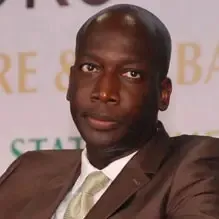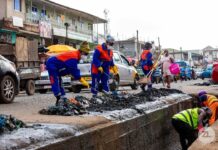The contention by the IEA and Ms. Akuffo that “joint venture agreements or “service contracts” are better than leases or concession contracts suffers from the error of promoting form over substance.
I have no aversion to strong language in debate when it is erected on solid facts and truth. I am also, by instinct and deliberate strategy, a supporter of free speech and reasoned debate. We learn when we exchange views. Even robustly. Often, as our forebears taught us, wisdom is not housed in anyone’s head.
Therefore, the conversation about Lithium mining in Ghana, in my view, is a good thing. The principle of public discourse in such matters drives accountability. Hence, all voices that have contributed to the conversation so far, including the Institute of Economic Affairs (IEA), must be commended. This is how nations should develop.
Yet, there has been a silly feature of the debate. I saw an outrageous “ad hominem” attack launched on Sam Jonah about comments he made in this same conversation. In that particular attack, there was hardly an effort to offer a counterargument.
Having been brought up to respect the Professoriate, I was disappointed that it was a professor who launched such a tasteless attack. This is not how debate is carried out on national matters, in my view.
It is important to state that I have only met Sam Jonah once in this life, for less than an hour. And I have never met the attacking Professor, indeed, I cannot tell the latter apart from a can of paint.
But I did think Sam Jonah may know something about mining and should not be gagged. I am no expert in the matter. Yet when I read the IEA position, I asked the following questions: Is there anyone here with access to IEA? I have just read this and would like to be educated some more.
How has this $24billion/annum estimate been arrived at? What is it an estimate of? Revenues or what level of profits?
For a country with GDP/annum hovering a little above $70 billion, the estimate is very significant, and the methodology by which it has been arrived at needs to be very properly understood. What are the assumptions made on international Lithium pricing for example?
Then, when it is said that a national Lithium company should be set up, how is it proposed that this will be capitalized, and what will be the route-to-market of the company?In all the conversations, I have struggled to understand these issues. Not being an area, I have any significant expertise in, I have therefore stayed quiet. Can anyone help?”_
This morning, my friend Ace Ankomah drew my attention to a paper authored by Fui Tsikata and Kofi Ansah. It was, in my view – for what that is worth in this context – an outstanding, illuminating, and constructive paper.
It confirmed my sense that the IEA position had gaps. That the IEA could be wrong on something, should not cause cymbals to clash or lightning to flash. Like us all, it can claim, legitimately that it is not infallible.
Fui Tsikata and Kofi Ansah said among other things:
“The IEA and Professor Ransford Gyampo of the University of Ghana have respectively made computations of revenue the country is giving away under the terms of the current mining lease which, if true, would be scandalous and be a basis for rejecting the agreement.
The IEA, backed by a former Chief Justice, Ms Sophia Akuffo, has also contended that a “joint venture” agreement or a “service contract” are preferred legal vehicles as opposed to a mining lease or concession, which they characterize as a colonial form.
Unfortunately, there are fundamental flaws in the methods used by the IEA and Professor Gyampo in computing revenues and the allocation of potential direct monetary benefits from the project which undermine the conclusions they seek to draw.
The contention by the IEA and Ms. Akuffo that “joint venture agreements or “service contracts” are better than leases or concession contracts suffers from the error of promoting form over substance.”_
Let the conversation continue. But it should be done completely bereft of this parade of serial caller culture that is choking debate among intellectuals in Ghana.
Even about rocket engines, there are dozens of ten-a-pesewa so-called social commentators that turn up to offer expert commentary. On subjects they cannot even spell.
Why the media allows this, I do not know! Aspects of the same media christens as “legal luminaries” and “constitutional experts,” people who have been at the bar for less than 18 months!!
Everyone who makes a call to a radio station these days seems to be called a “guru” in something. Regardless of how completely illiterate they are in the subject.
These are all features of anomie. The collapse of intellectual rigour. Tyranny by the ignorant where he (and it is usually he) who shouts loudest is heard. Not she who knows best.
This must stop. The day must come when those who believe knowledge is the primary productive force must speak up to restore standards.
People who speak like I am doing now lay themselves open to attack for being snubs. But speak up we must. Or else we will sink even further. We should not again be calling on the retired Professors to come to our help. But we need the help and they must.
When did Professors of our prestigious public universities start to contribute to important national debate using ad hominem invective? Unacceptable. In the meantime, let the conversations continue, so people like me can learn.
The writer, Yaw Nsarkoh is the Executive Vice President (EVP) of Unilever Ghana and Nigeria





